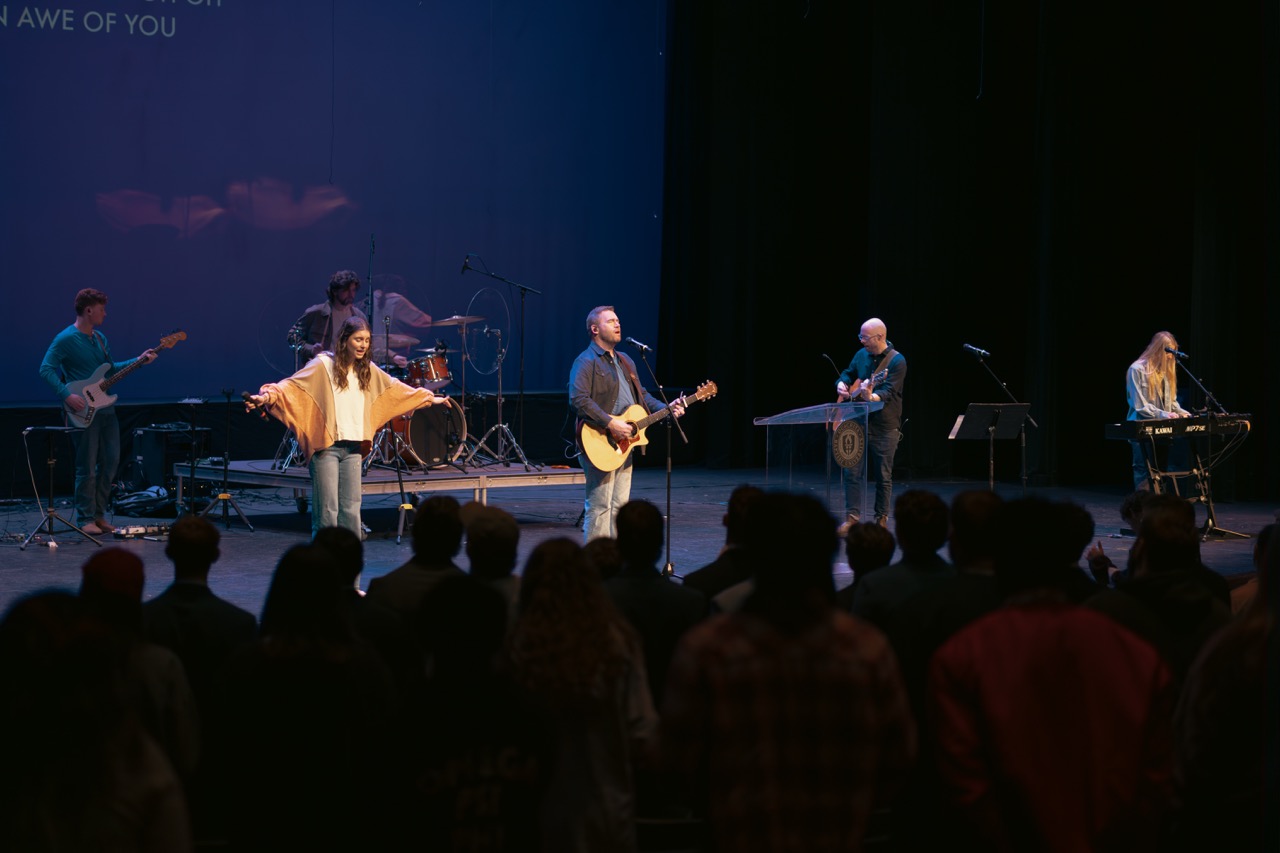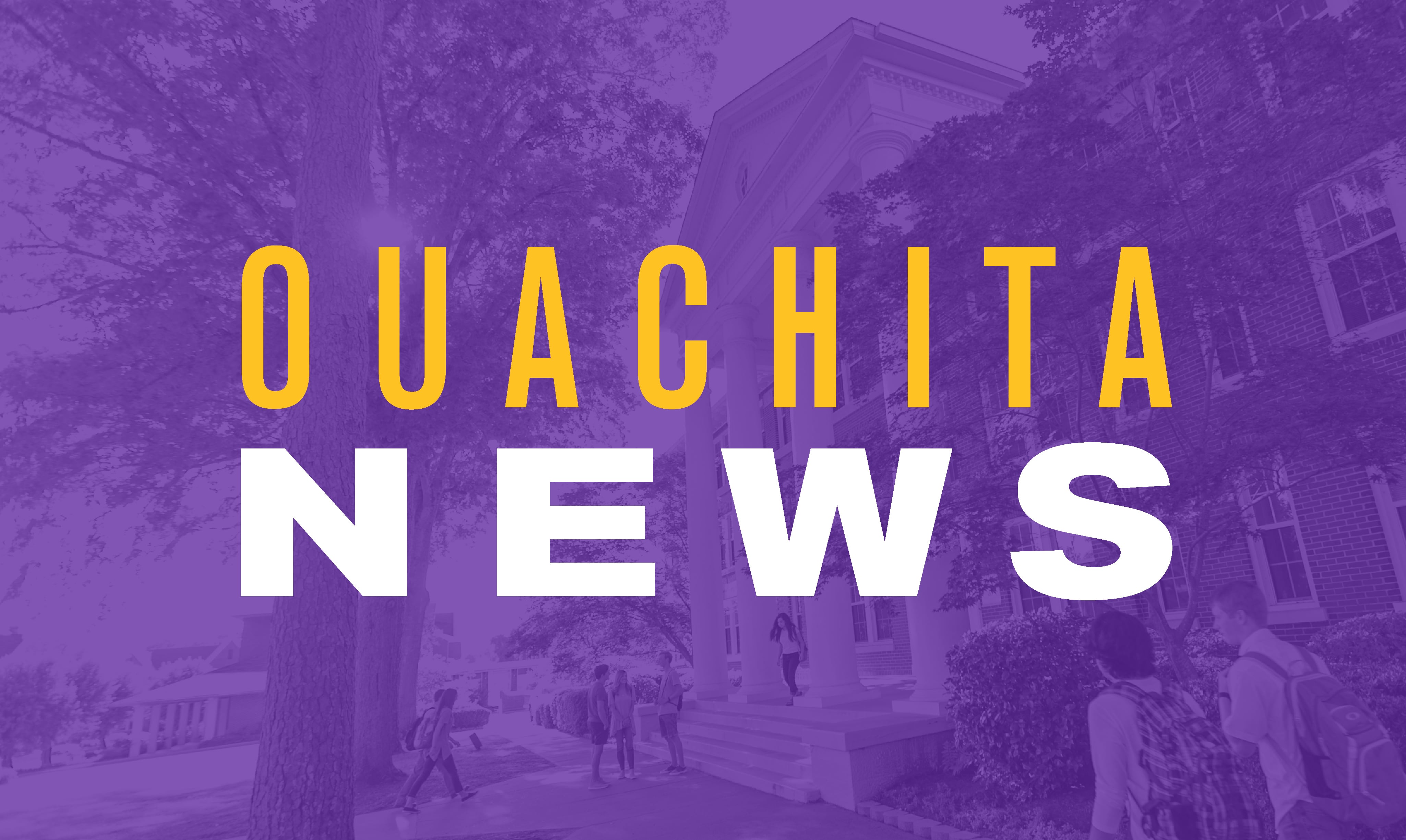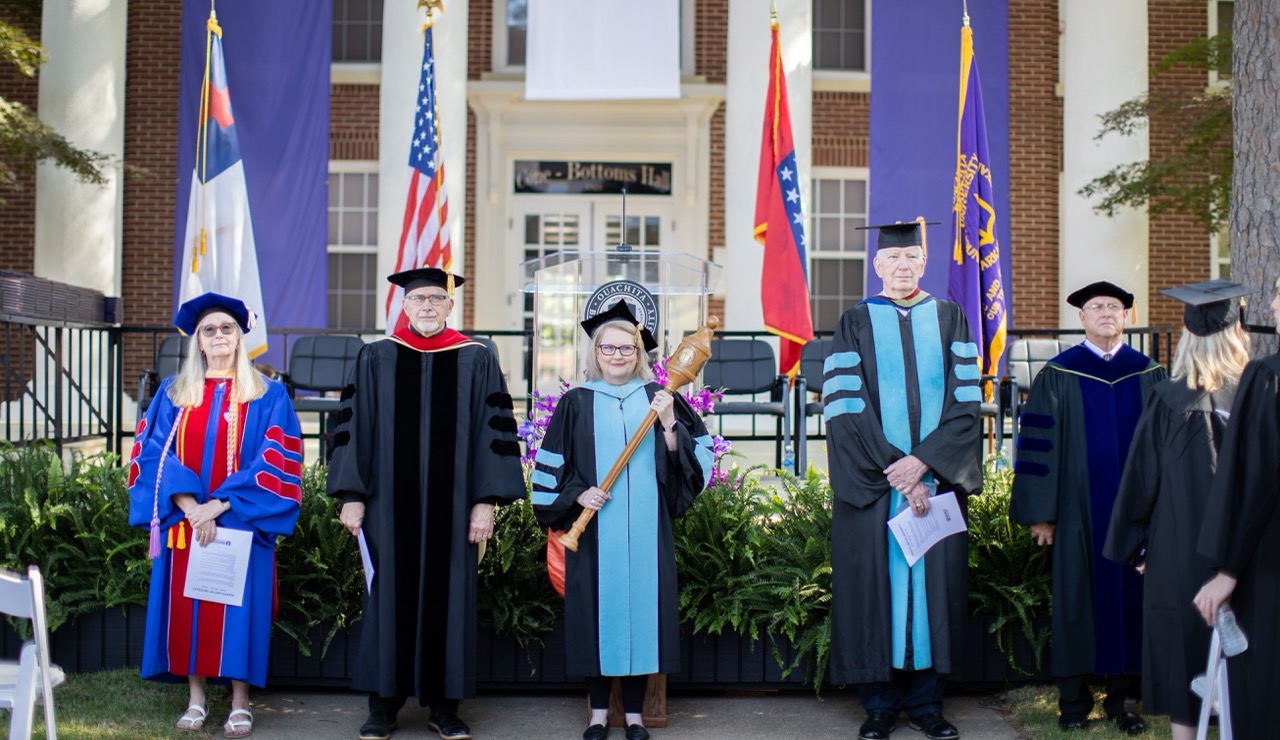All the wiser: Making good choices in our search for happiness
 February 10, 2020
- Ben R. Sells
February 10, 2020
- Ben R. SellsAs we begin a new semester, I want to share a brief reflection on this year’s theme, taken from our mission statement, “intellectual and spiritual growth.”
Probably like you, I watched several movies during Christmas break. The most fascinating movie was Honeyland. It’s a 90-minute documentary about the life and labors of a woman living in a remote village in the country of Macedonia; the relationship with her aging, bed-ridden mother; and a new neighbor. The woman is a bee-keeper and earns a subsistence living by selling the honey in a nearby town.
The movie was so interesting because of the contrast between her life and our lives. She has so few opportunities, and we have so many. Progress leads to opportunities, and opportunities gives us choices. It’s wonderful! Yet, progress – and the prosperity that often accompanies it – is not without challenges.
For example, you would think that progress guarantees happiness. Over the Christmas break, I read the United Nations’ highly regarded World Happiness Report – describing how people in each country self-report their level of happiness.
The findings about the United States are interesting. Even though our country experienced significant economic prosperity in the past decade, we’re less happy than we were 10 years ago. The report cites three reasons:
- Even though we have more choices to lead a healthy life, we have a declining life expectancy.
- Even though we have more choices for life-saving drugs, we have new levels of addiction.
- Even though we have more choices to communicate and access information through social media, we report greater isolation.
More progress and prosperity, which you’ll help produce as you enter the workforce, means we’re only going to have more choices and decisions. So, here’s what I reflected on over the break: How do we make good choices that might lead to more, not less, happiness? How do we make choices that will help us become the person God intends us to be?
Psalms
This academic year, as part of my daily devotions, I’m reading through the Book of Psalms each month. There are 150 Psalms, so it’s 10-15 minutes of daily reading. Psalms is one of the most-read books in the Bible. It depicts every possible life situation, and serves as a guide for practical living.
By re-reading the Psalms, I continually have fresh insights. Over Christmas, while thinking about making choices, Psalm 90:12 especially resonated with me. It reads: “Teach us to number our days, that we may gain a heart of wisdom.”
My initial focus was on “number our days.” I’ve lived about 21,000 days, and if I live a normal life span, I have another 8,000 days. If an average life were a 24-hour day, then it’s about 7:30 p.m. for me. For you students, it’s about 7:30 a.m. I’m thinking about how to finish well; you’re thinking about how to start well.
But, most of my reflection on this verse over the holidays focused on “gain a heart of wisdom.” Intellectual and spiritual growth, when pursued rightly, cultivates wisdom.
Wisdom
One of the blessings, but also one of the burdens, of growing older is that you have the benefit of time to see the effect of choices made many years ago. As a result, you live giving thanks for some decisions but having regret for other decisions.
How do we make good choices? Wise choices? I think this verse, “teach us to number our days, that we may gain a heart of wisdom,” may be less about making wise choices, and more about becoming a wise person. In other words, if we’ll focus on growing in wisdom we’ll increasingly make wise choices.
So, how do we grow in wisdom? That’s a big, important question that we can’t answer in one Chapel or even one semester. But, to help us start thinking about the question at the beginning of a semester, three thoughts emerged for me that I would like for us to consider:
- Learn from our mistakes.
- Listen to others.
- Lean in to God.
Learn from mistakes
Experience and the Bible (Job 12:12) tells us that wisdom comes with age. Why? Because the longer we live, the more mistakes we make, and the more opportunity to learn from them. What’s a mistake you’ve learned from?
One of the mistakes I’ve made many times is responding by email when I’m frustrated. Many years ago, I wrote an email to a person who reported to me. I was frustrated with the person, and change was needed by that person; however, my email was poorly written. Fortunately, the person had the courage to tell me it was the most hurtful email he had ever received. I’ve never forgotten that mistake.
When I’m tempted to write out of frustration, I’ve learned to wait a day or two. The frustration usually subsides. I either write a more appropriate email, or talk face-to-face, or simply move on. This mistake has taught me – and the Bible says it’s true – “a wise person uses gracious words.” (Ecclesiastes 10:12) I’m not beyond making this mistake, but I make it less often.
We become wiser when we learn from our mistakes.
Listen to others
I hope you will have people in your life who give helpful advice. Often, it may come from a mentoring relationship, but sometimes it can happen in a moment. Several years ago, I spent an afternoon with someone much older than me. He had started a business out of his van, grown it to be incredibly successful and supported many Christian causes.
In the conversation, I learned that we shared a mutual interest in the Myers-Briggs Type Indicator, a personality inventory. In the conversation, we discovered that we had a similar “personality.” When I asked him what he had learned about his “type” and leadership that might help me, he said: “I have to regularly remind myself that I’m not always right.”
It’s probably part of being human to think we’re always right. I’ve always remembered what he said.
And, I’ve often repeated his words: “Ben, you may not be right.”
And, that perspective cultivates learning because I listen to others. It also cultivates humility because I’m not always right. Proverbs 19:20 reminds us: “Listen to advice and accept instruction that you may gain wisdom in the future.” And Proverbs 11:2 says “…with humility comes wisdom.”
We become a wiser person when we listen to others.
Lean in to God
I’ve so enjoyed reading through the Psalms every month, and the repetition allows me to see patterns. For example, I began to underline the attributes of God. Here are some of them:
The God of the universe listens and is loving; is gracious, merciful, patient, and compassionate; is faithful; strong, mighty and like a rock; our salvation and deliverer; a righteous judge; a defender and shield; father of the fatherless and defender of widows; a hiding place and refuge; a healer and helper; a shepherd and guide; hope and light; this God is our King, good and wise; is acquainted with all our ways; and so much more.
I need a God like this; how about you?
Psalms 86:8 declares, that “among the gods, there is none like you.” While our days are numbered, God is without beginning and end. It’s why the Psalms proclaim that knowing, respecting, living in awe of and fearing this God is the beginning of wisdom. (Psalm 111:10)
To become a truly wise person, we must know this God – a God who also wants to know you. We come to know God through a relationship with Jesus Christ; we know God better, in part, by spending time in a book, the Bible, that God has given to us.
I encourage you to lean in to God. At the beginning of a new semester and the year 2020, if you’re not reading the Bible, I encourage you to start. You can begin by reading a Psalm a day.
Conclusion
There are a little more than 100 days until Commencement. We can become wiser people, even this semester, by: learning from our mistakes, listening to others and leaning in to God.
And as we do, we’ll make wiser choices. And, you’ll probably be happier. In the “happiness” studies, people who are serious about their faith describe themselves as much happier than those who are not.
It’s going to be a great semester! Thank you.
By Ouachita Baptist University President Ben. R. Sells, PhD
*This blog entry originally served as Dr. Sells’ chapel address at the start of the spring semester on Jan. 21, 2020.
You Also Might Like
Recent
Ouachita reports Spring '26 enrollment, led by 50% increase in graduate students
February 11, 2026





